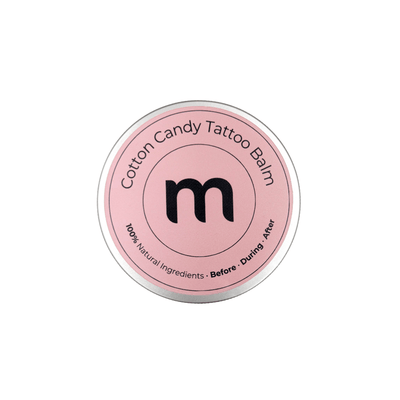The psychology behind why people in their droves are choosing to get inked is often overlooked. Tattoo artists need to understand the psychological motivations behind their clients' decisions in order to create meaningful and lasting connections with them. Without this knowledge, tattoo artists can't truly capture what it is that makes each individual's new tattoo special and unique.
This blog will explore the psychology of tattoos and how tattoo artists can use this knowledge to their advantage. By understanding the deeper motivations behind why people get tattoos, artists can create powerful connections with their customers and ensure that every piece they make is as special as possible.
What type of person gets tattoos?
The decision to get a tattoo is a highly individualistic choice that transcends societal norms and spans a diverse range of people. There is no specific "type" of person who gets at least one tattoo throughout their lifetime, as the motivations and reasons behind their ink vary greatly.

However, people with tattoos are likely to have certain traits in common. They are often more independent and open-minded, as well as more likely to take risks and seek out novel experiences. Tattoos can be seen as a way for these individuals to express their individuality and stand out from the crowd.
Ultimately, the tattooed community encompasses individuals from all walks of life, various ages, genders, and backgrounds. All of these people have one thing in common: they have found a means of self-expression through tattoos. Remember, no matter who you are, all body art should receive the tattoo aftercare they deserve so be sure to pick up quality care products today.
8 reasons why people get tattoos
Self-expression
Many people view tattoos as a form of self-expression, allowing them to tell their personal narrative in an artwork that is permanently etched onto the human body. Tattoos are a way for people to show off their unique personalities and share aspects of themselves that they may not be able to express through words.
Commemorate events or people
Tattoos are often chosen to commemorate loved ones, important dates, or life-changing events. Through the permanent ink reminder on their skin, a tattooed person can keep their memories close and connected to them at all times.
Art and aesthetics
Some tattooed individuals choose to get inked for the sheer beauty and artistry of it. They may admire certain styles or designs and love the idea of having something that is aesthetically pleasing permanently on their body.
Individuality and rebellion
Tattoos are often seen as a statement of one's individuality and independence. While there is much less stigma surrounding tattoos nowadays, many people choose permanent body art as a way to rebel against societal norms and express themselves without fear of judgement. Young adults are especially likely to get tattoos as a statement of their independence.
Cultural identity
Tattoos can often be used to represent cultural heritage or identity. These specific tattoos could include a particular symbol from one's culture, traditional patterns and motifs, meaningful tribal designs, or even representations of religious beliefs. Through tattoos, these individuals can display their pride in where they come from and keep their cultural identity alive.

Body empowerment and healing
For some, tattoos are a way to reclaim their bodies and take back control. Body art can be seen as a form of body empowerment, allowing the wearer to celebrate their strength and resilience while transforming their body image into one they are proud of. For others, tattoos can be a way to heal and move on from past pain and trauma while also boosting self-esteem.
Cover scars and imperfections
We all have imperfections, and tattoos can often be used to cover physical scars or blemishes. Through permanent body art, the wearer can transform a scar into something beautiful that they are proud of.
Addicted to ink
The thrill of getting a tattoo can be addictive for some people. This adrenaline rush is often enough to motivate them to keep adding more tattoos, even if they don’t necessarily have any particular meaning or significance behind them.
Make sure to be using a professional tattoo ink for your designs to ensure long-lasting, high-quality results.
Do certain tattoo styles have different psychological implications?
Different tattoo styles can evoke distinct emotions and convey unique messages. For instance, realistic tattoos, with their lifelike portrayals, often elicit strong emotional connections, as they mirror the real world.
On the other hand, traditional or neo-traditional tattoos, with bold lines and vibrant colours, can symbolise a sense of nostalgia, honouring the timeless art of tattooing.
Moreover, minimalistic tattoos, with their simplicity and elegance, might reflect a desire for subtlety and a focus on the essential elements in life.
In contrast, the abstract tattoo style may represent a complex and multifaceted personality, appealing to those who embrace ambiguity and mystery.
Ultimately, the psychological implications of tattoo styles can vary greatly from person to person, but understanding these common themes can help tattoo artists tailor their designs to better suit their clients. When your design is finalised, make sure to use products like Spirit Thermal Transfer Paper to create a quality stencil.
Is there a difference between people who have multiple tattoos compared to just one?
The psychological difference between individuals with multiple tattoos compared to those with just one can be subtle yet significant. Those with multiple tattoos often display a stronger commitment to the art form, showcasing a willingness to embrace their bodies as a canvas for storytelling.

On the other hand, individuals with a single tattoo may have a more reserved approach to body art, valuing the significance of a certain design and its personal meaning. For them, the decision to get tattooed may have been a deliberate and carefully considered choice.
However, it is important to remember that the number of tattoos a person has does not necessarily dictate their psychological characteristics. Motivations for getting inked can vary greatly from one individual to another.
How can the psychology behind tattoos help tattoo artists?
Understanding the psychology of tattoos is invaluable for tattoo artists, allowing them to create meaningful and powerful connections with their clients.
By delving into their client's motivations and desires, tattooists can tailor each design to the individual's needs and preferences. This understanding will help foster a deeper sense of trust and mutual understanding between artist and client.
In addition, by being aware of the different tattoo styles and their unique psychological implications, tattoo artists can create designs that are both aesthetically pleasing and emotionally resonant. This will ensure that each piece of work is as meaningful and impactful as possible. If you're an artist why not stock studio packs of MTS Tattoo Balm to give to your clients after their appointment?
Conclusion
The psychology behind tattoos is a fascinating and diverse area, with individuals having unique motivations for getting inked. With an insightful understanding of their clients, tattoo artists can leverage this knowledge to create meaningful works of art that connect on a deeper level. By doing so, they can develop lasting relationships and provide the best possible experience for each of their clients and their different tattoos.




























































 Studio supplies
Studio supplies












 Power & batteries
Power & batteries







 Aftercare
Aftercare



















 Apprentice
Apprentice


 Piercing & jewellery
Piercing & jewellery







 PMU supplies
PMU supplies



 New arrivals
New arrivals
 Gift vouchers
Gift vouchers
 Shop all
Shop all










































